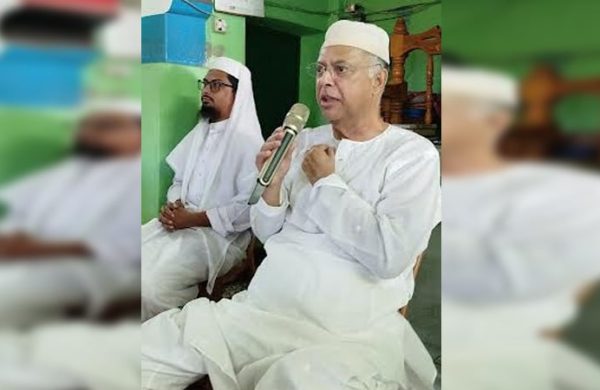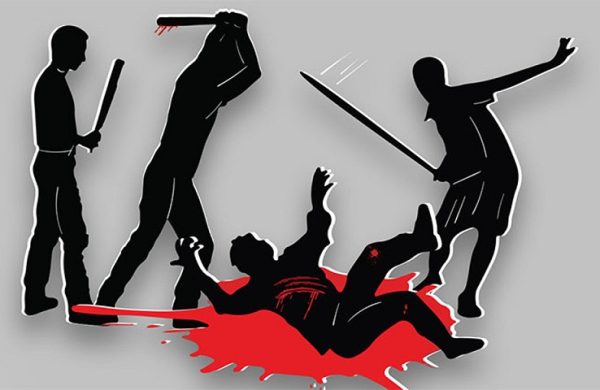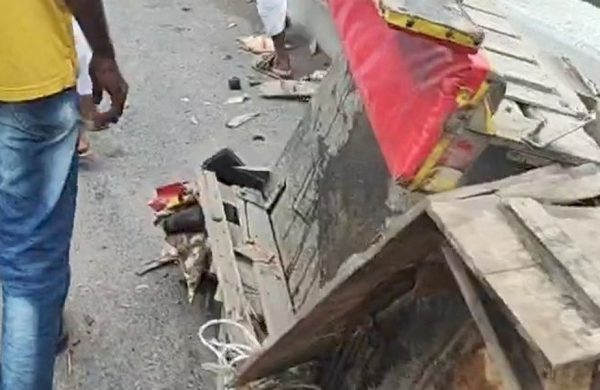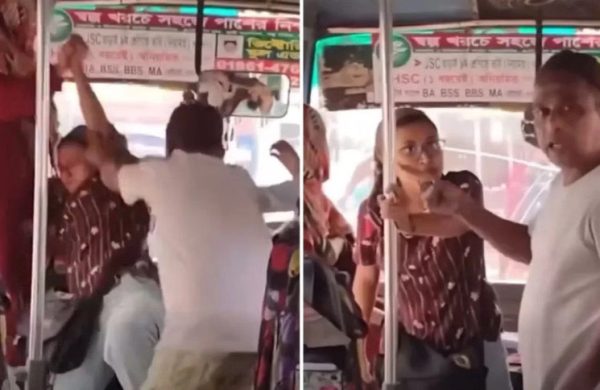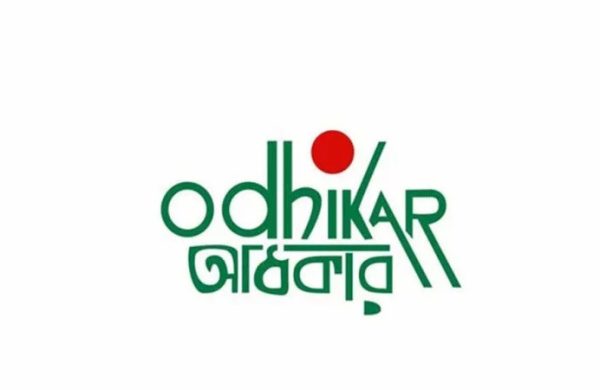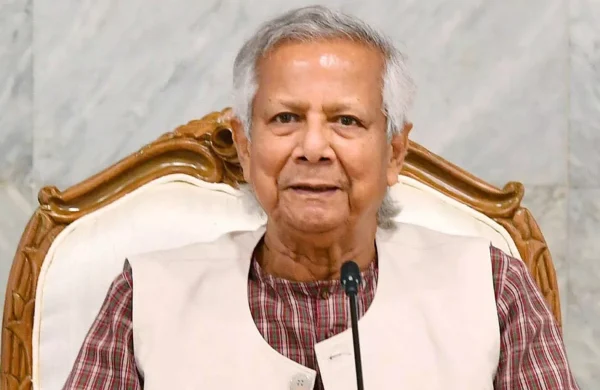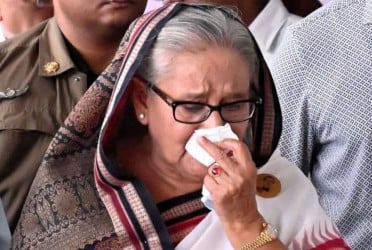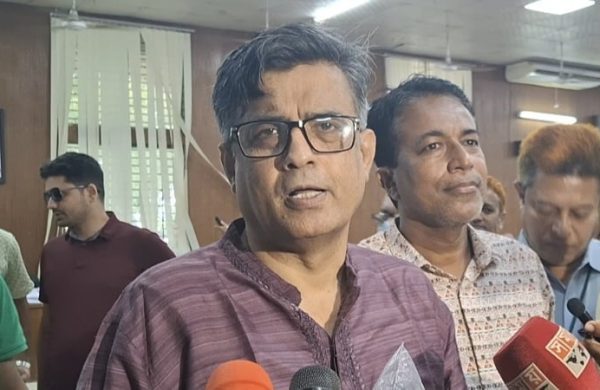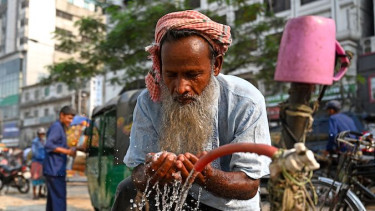Interim govt, Consensus Commission betraying the nation: Mirza Fakhrul
- Update Time : Friday, October 31, 2025
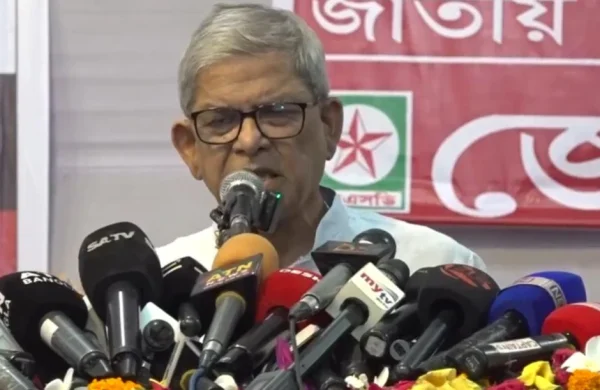
Staff Correspondent:
Bangladesh Nationalist Party (BNP) secretary general Mirza Fakhrul Islam Alamgir has accused the interim government and the National Consensus Commission of betraying the country and its people, saying they have “deceived the nation.”
Speaking at a discussion held at the National Press Club in Dhaka on Friday, marking the 53rd founding anniversary of the Jatiya Samajtantrik Dal (JSD), Mirza Fakhrul made the remarks during a session focused on the July National Charter and the recommendations for its implementation.
“When they (the National Consensus Commission) presented their recommendations to the chief adviser of the interim government, we saw many discrepancies. In particular, they had assured that the notes of dissent submitted by different parties would be incorporated into the recommendations. We trusted them on that. But they have betrayed that trust and deceived the people — something we never expected from them,” he said.
Emphasising that BNP is a party in favour of reform, Mirza Fakhrul stated, “Despite our differences, we signed the July Charter. Where we had disagreements, we gave notes of dissent. If we are voted into power, we will implement those; if not, we will not.”
He added, “Although we had differences, we signed the main Charter. The norm is that if we come to power through elections, if the people vote for us, we will bring those matters forward again, pass them in Parliament, and bring about the changes the country needs.”
The BNP secretary general alleged that attempts are being made to portray the BNP as a party opposed to reform. “BNP was born out of reform,” he said. “In 1979, president Ziaur Rahman replaced the one-party rule with a multi-party system.”
Mirza Fakhrul also claimed that a certain quarter is attempting to delay the upcoming national election. “There is now no scope to hold a referendum before the election. We have made it clear that the referendum will be held on the same day as the election; there will be two ballots, one for the referendum and another for the Jatiya Sangsad (national parliament) election.”
Without taking names of any political party, the senior BNP leader criticised those demanding that the referendum be held first. “Those who have taken to the streets for a referendum should stop misleading the public,” he said. “This is the same party that opposed the Liberation War in 1971. Today, they should not oppose the election that the people want.”
He also paid tribute to JSD president ASM Abdur Rob for his political contributions. “After the Liberation War, when the country was trapped in one-party rule, leaders like ASM Abdur Rob helped rescue the nation,” Fakhrul said.
Wishing Rob a speedy recovery, Mirza Fakhrul further announced that if elected, the BNP would form a national government with political parties that took part in the anti-fascist movement.
Nagorik Oikya president Mahmudur Rahman Manna said the country is in a deep crisis, accusing the interim government of deceiving the people. “If the government that will organise the election itself deceives the people, then what hope is there?” he said in frustration.
Manna argued that the present situation in Bangladesh does not permit a referendum before the election. “The only way out of the current crisis is to hold the national election as soon as possible,” he said.
Mujibur Rahman Monju, chairman of the Amar Bangladesh (AB) Party, remarked, “The tragedy of our history is that time and again we remove autocrats, only for new ones to emerge from among us. We thought the people’s uprising would usher in a new kind of politics. Sadly, post-2024, politics seems to be returning to a BNP–Jamaat bipolar framework.”
Nurul Haque, president of the Gono Odhikar Parishad, alleged that some are using the referendum as a tool for determining parliamentary seats.
“If the election schedule is announced in December, that leaves barely a month; how can another election-like process be held within that time?” he asked.
Saiful Haque, general secretary of the Biplobi Workers Party (Revolutionary Workers Party of Bangladesh), said the current context does not allow the country to take on the risk of two elections.
“We supported the interim government on specific issues, but they cannot issue executive orders; that were never our mandate,” he stated.
JSD general secretary Shahid Uddin Mahmood Swapan said party president ASM Abdur Rob could not attend the anniversary discussion due to illness but had conveyed his greetings to all guests.
The meeting was chaired by JSD vice-president Tania Rob, who said, “The JSD was formed to protest against injustice. The party still stands by that principle today.”
Others who spoke at the discussion included Syed Hasib Uddin Hossain, general secretary of the Bangladesh Rashtra Sanskar Andolan (State Reform Movement); Sheikh Rafiqul Islam Bablu, chairman of the Bhasani Janashakti Party; Subrata Chowdhury, president of the Gono Forum; Tawhid Hossain, a member of the JSD standing committee; and SM Shamsul Alam Nixon, president of the Jatiya Jubo Parishad (National Youth Council).


